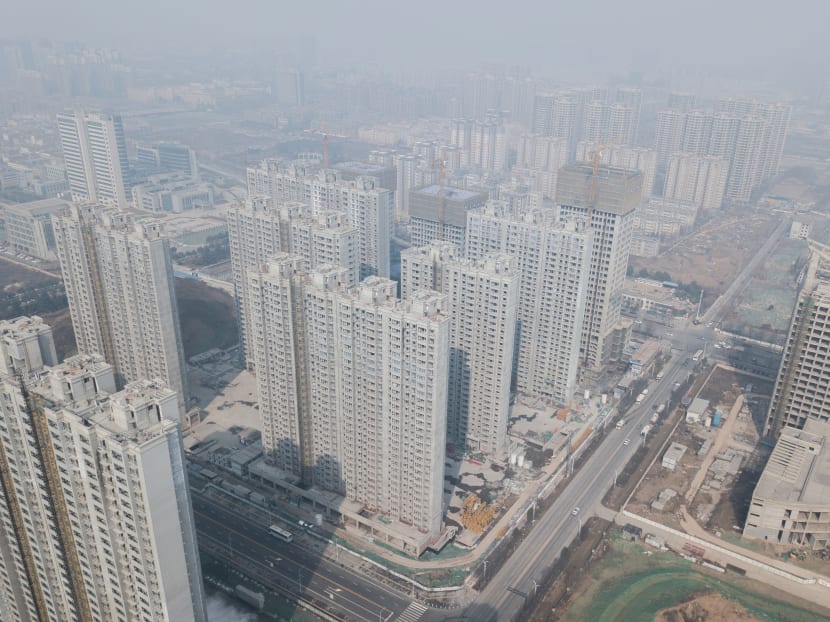China’s smaller cities compete to increase population
BEIJING - China’s second-tier cities have attracted hundreds of thousands of residents this year by awarding permanent residency to graduates in an attempt to push their economies towards higher-end manufacturing and services.

Xi'an's population has increased by 500,000 this year, after the city granted permanent residency to college graduates from anywhere in China.
BEIJING - China’s second-tier cities have attracted hundreds of thousands of residents this year by awarding permanent residency to graduates in an attempt to push their economies towards higher-end manufacturing and services.
The policies are in stark contrast to those employed by China’s largest cities, Beijing and Shanghai, which have reduced their populations for the first time in decades by tightening residency requirements and expelling workers who migrated from the countryside.
The western city of Xi’an is one of those whose expansionist policy is already having a marked effect.
It was one of the capitals of ancient China, but in recent decades it has fallen behind coastal cities such as Shanghai, where wages are about twice as high.
However, this year its population increased by 500,000 — twice the number added in the previous five years — after it granted permanent residency to college graduates from anywhere in China, giving them access to local services such as schools and the right to buy property in the city.
“I studied software and communication engineering and AI, so I believe l'll find a rather good job in Xi'an,” said 21-year-old Wang Tao, a recent university graduate, queueing outside one of the city’s police stations that processes residency permits.
The city of Chengdu in southwestern China says it has attracted 170,000 new residents in the last year and Wuhan in central China has handed out 142,000 permits to remain.
When the northern city of Tianjin relaxed residency requirements earlier this year, such was the demand that applicants slept outside police stations and officials fielded 300,000 applications in 24 hours.
Like Mr Wang, many graduate newcomers are willing to swap existing residency permits in smaller towns for access to superior schools and hospitals in second-tier cities.
But the biggest attraction is getting a slice of real estate.
“The direct reason for getting a hukou [residency permit] is to buy a house,” said graduate Wang Zhuohang, 24.
The population influx is also helping fill many unoccupied apartment blocks — the product of frenzied investment in property on the mainland over the past decade.
Xi’an has reduced its inventory of unsold housing by 2 million square metres this year since relaxing residency requirements, according to consultancy E-House China Research Institute.
There are signs that relaxed residency policies are paying off in other ways too: e-commerce giants Alibaba and JD.com have set up regional headquarters in Xi’an, while technology groups such as Huawei and Hikvision have established research centres.
But the risk for China’s smaller cities is that by driving up demand for property, they are reigniting an increase in prices which spurs new housing investment— prolonging economic reliance on real estate and delaying a reckoning with empty developments.
House prices in Xi’an have surged nearly 50 per cent year-on-year, E-House adds, with similar increases in other cities that have relaxed residency requirements.
At the sales office of World City, a new development in Xi’an, apartments are selling at a rate of 550 a day.
“We are nearly sold out . . . people who get a hukou have to buy a house. Why else would they want one?” said salesman Hou Peng.
The residency liberalisation does not apply to working class residents, who in Xi’an complain that demolition of cheap housing is driving them further from the city centre.
“It’s getting harder to obtain a hukou,” said Liu Fei, 32, who runs a small noodle restaurant in a rundown district.
Liberal Chinese economists argue that Beijing should abolish the system of residency permits, allowing talent and investment to flow according to market forces.
They say, for example, that if unsold housing stock is offloaded in second-tier cities it will simply leave a glut of housing in smaller cities.
“The measures competing for talent in second- and third-tier cities are not sustainable and are causing resource mismatches. It will lead to inefficient investments,” said Zhang Jun, an economics professor at Fudan University in Shanghai.
“Original inventories [of housing stock] are large, and now there will be a new round of investment.”
The policy has created resentment among the cities’ existing permanent residents, who complain that newcomers are overwhelming local schools, hospitals and transport infrastructure.
Xi’an is racing to complete four new subway lines before 2020 — fostering a construction boom.
“People are getting permanent residency every minute. That’s increasing our sales,” said Liu Yang, founder of a company that sells concrete for subway tunnels.
“We have about 9 million residents now and will reach 15 million in a few years.” THE FINANCIAL TIMES






